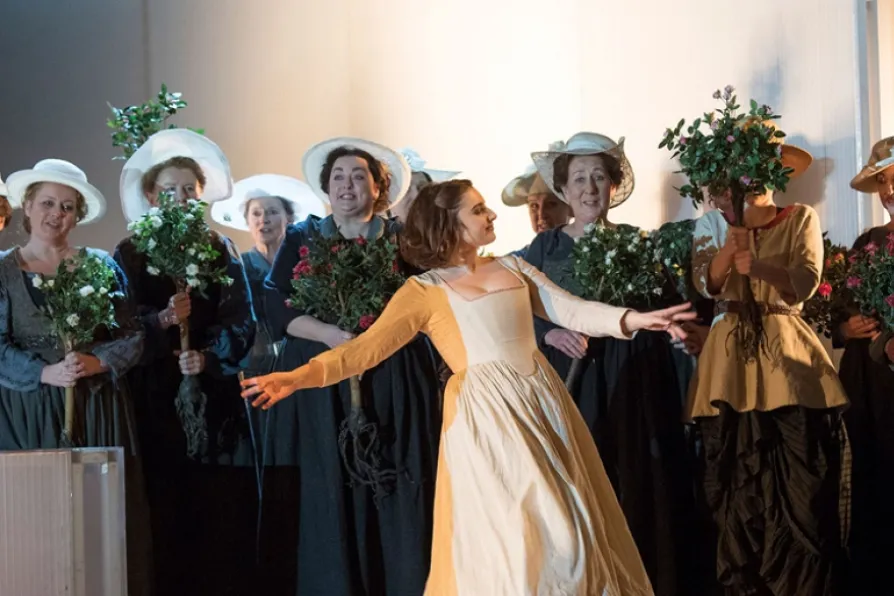RITA DI SANTO draws attention to a new film that features Ken Loach and Jeremy Corbyn, and their personal experience of media misrepresentation
This Figaro hits all the right notes
An excellent production that brings out all the class and gender issues as well as offering an impressive staging, writes JOHN GREEN

 Alison Rose and the female members of the ENO Chorus
[Alastair Muir]
Alison Rose and the female members of the ENO Chorus
[Alastair Muir]
The Marriage of Figaro
English National Opera
London
Mozart’s most revolutionary comic opera tackles traditional gender roles and class society. But packages it in scintillating orchestral writing and vocal fireworks. It is based on the play by Beaumarchais first performed in 1784. At the time the play was banned in Vienna due its subversive subject matter.
As a result of the ‘#MeToo’ movement, situations where wealthy and powerful men sexually harass women have become a key issue, so Mozart’s 200-year-old opera is as relevant as ever.
Similar stories

DAVID NICHOLSON is thrilled – and shocked – by an opera that seethes and sizzles with passion and the depraved use of power

GORDON PARSONS is disappointed by an unsubtle production of this comedy of upper middle class infidelity

ANGELA COBBINAH applauds the success of a tribute in drama by a daughter to her immigrant mother

DAVID NICHOLSON welcomes an overdue revival of WNO’s classic production, complete with protests against cuts










